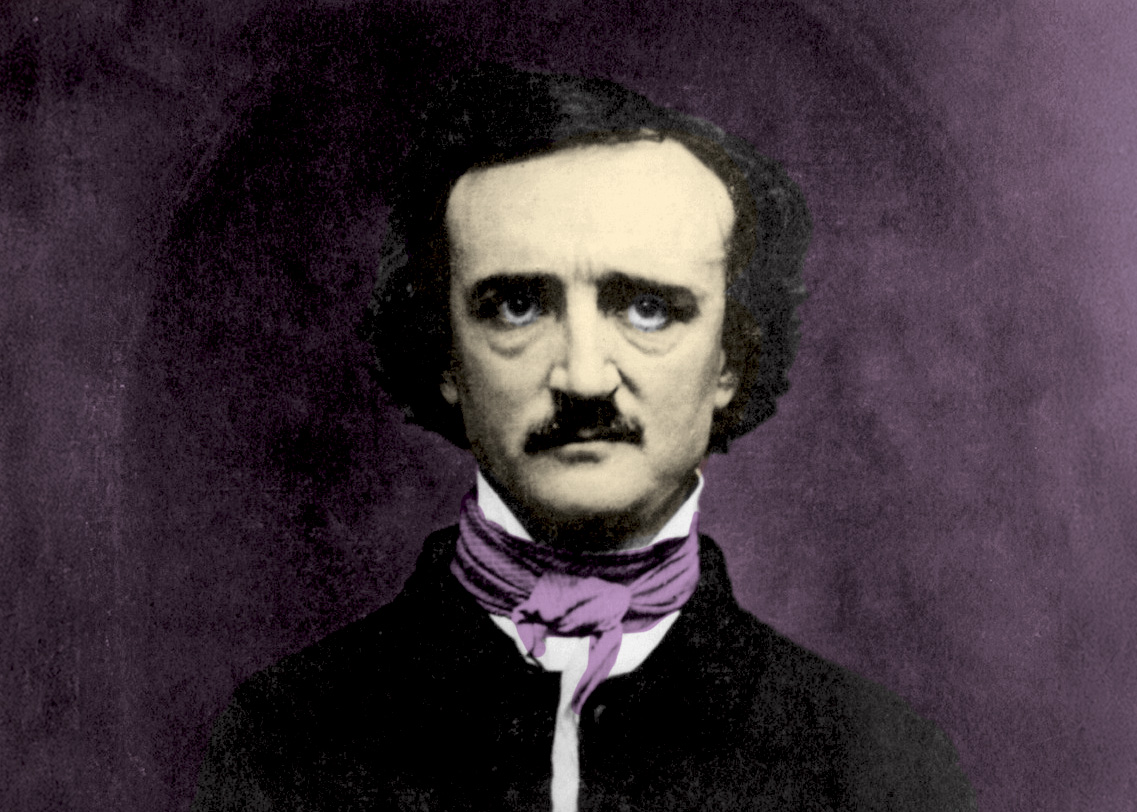Edgar Allan Poe, the master of the macabre, has left an indelible mark on the literary world. His works, a testament to his boundless imagination and innovative style, continue to captivate readers with their eerie and haunting themes. As a pioneer of the detective fiction genre and a master of the dark and Gothic, Poe’s influence on spooky literature is unparalleled.
Poe’s early life was marked by tragedy and hardship, which would later become the catalyst for his dark and introspective writing. The loss of his mother at a young age, followed by his foster father’s rejection, instilled in him a sense of loss and abandonment. These experiences would later manifest in his works, as seen in “The Raven,” where the narrator is haunted by the memory of his beloved Lenore. The poem’s haunting refrain, “Quoth the Raven, ‘Nevermore,’” becomes a poignant expression of the narrator’s despair and longing.
Poe’s fascination with death and the supernatural is a recurring theme throughout his works. In “The Tell-Tale Heart,” he explores the darker aspects of human nature, as the narrator’s guilt and paranoia drive him to madness. The story’s use of symbolism, particularly the old man’s “evil eye,” foreshadows the narrator’s downfall, showcasing Poe’s mastery of suspense and psychological tension. The narrator’s unreliable narrative voice, a hallmark of Poe’s style, adds to the story’s sense of unease and uncertainty.
Poe’s detective fiction, as seen in “The Murders in the Rue Morgue,” revolutionized the genre with its introduction of C. Auguste Dupin, a precursor to Sherlock Holmes. This story’s use of rational deduction and analytical thinking paved the way for future detective fiction, cementing Poe’s influence on the genre. Dupin’s extraordinary abilities of observation and deduction serve as a counterpoint to the narrator’s more intuitive and emotional approach, highlighting the tension between reason and passion.
In “The Fall of the House of Usher,” Poe explores the decay of the human psyche, as the narrator becomes entangled in the mysterious and eerie world of the Usher family. The story’s use of atmospheric tension and symbolism, particularly the crumbling house, serves as a metaphor for the fragility of the human mind. The Usher family’s dark and troubled history, shrouded in mystery and secrecy, serves as a backdrop for the narrator’s own descent into madness.
Poe’s innovative use of language and style, characterized by his emphasis on rhythm, meter, and imagery, has had a lasting impact on literature. His works often feature a sense of musicality, as seen in “The Bells,” where the repetition of the bells’ tolling creates a haunting and hypnotic effect. The poem’s use of onomatopoeia and assonance adds to its musical quality, creating a sense of rhythm and flow.
In the end, Poe’s literary importance in spooky literature cannot be overstated. His innovative style, characterized by its dark and introspective themes, has influenced generations of writers. Through his works, Poe has left an indelible mark on the literary world, ensuring his place as one of the greatest writers of all time. As we continue to read and reread his works, we are reminded of the power of literature to captivate and haunt us, a testament to the enduring legacy of the Raven’s quill.





